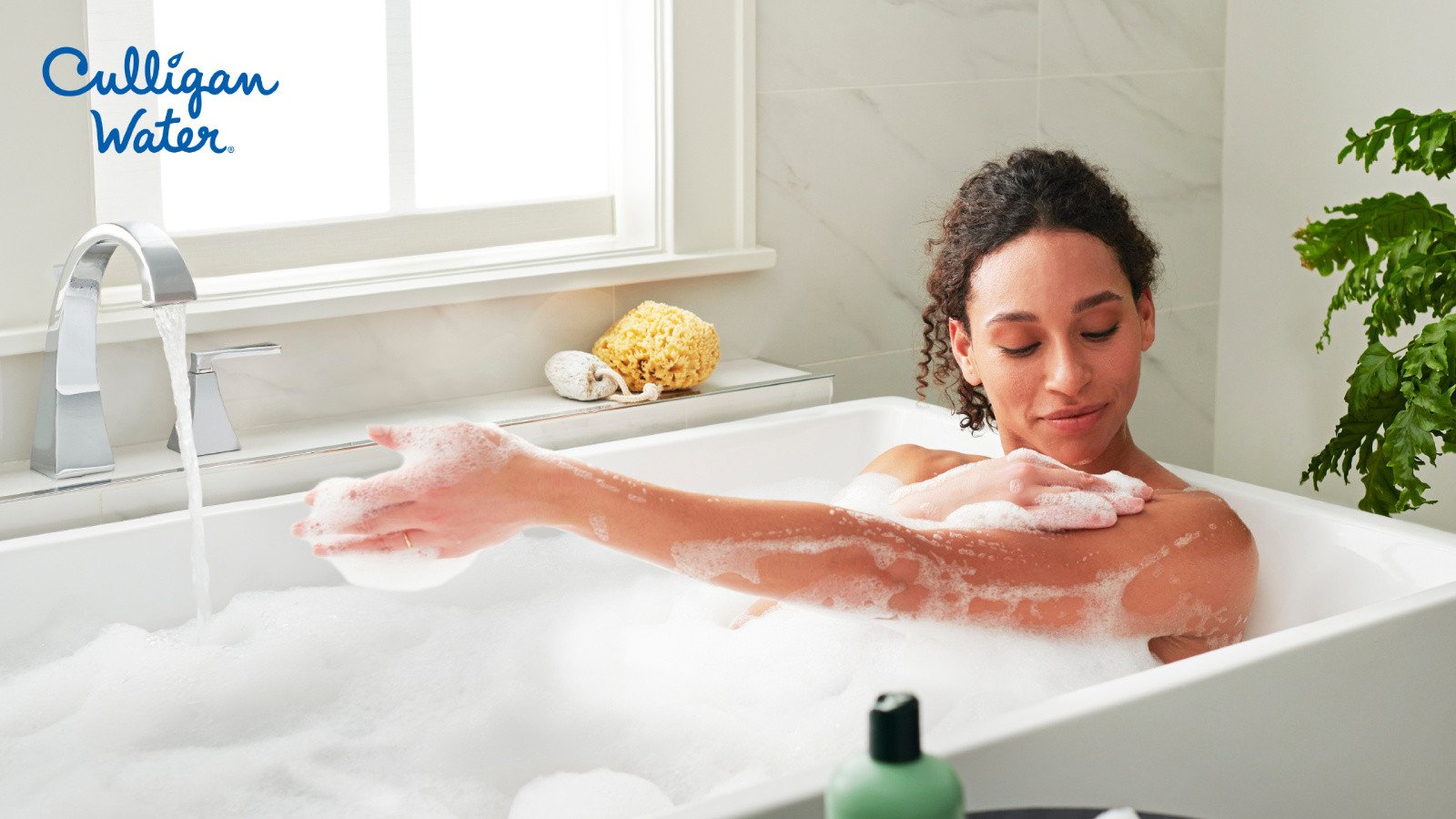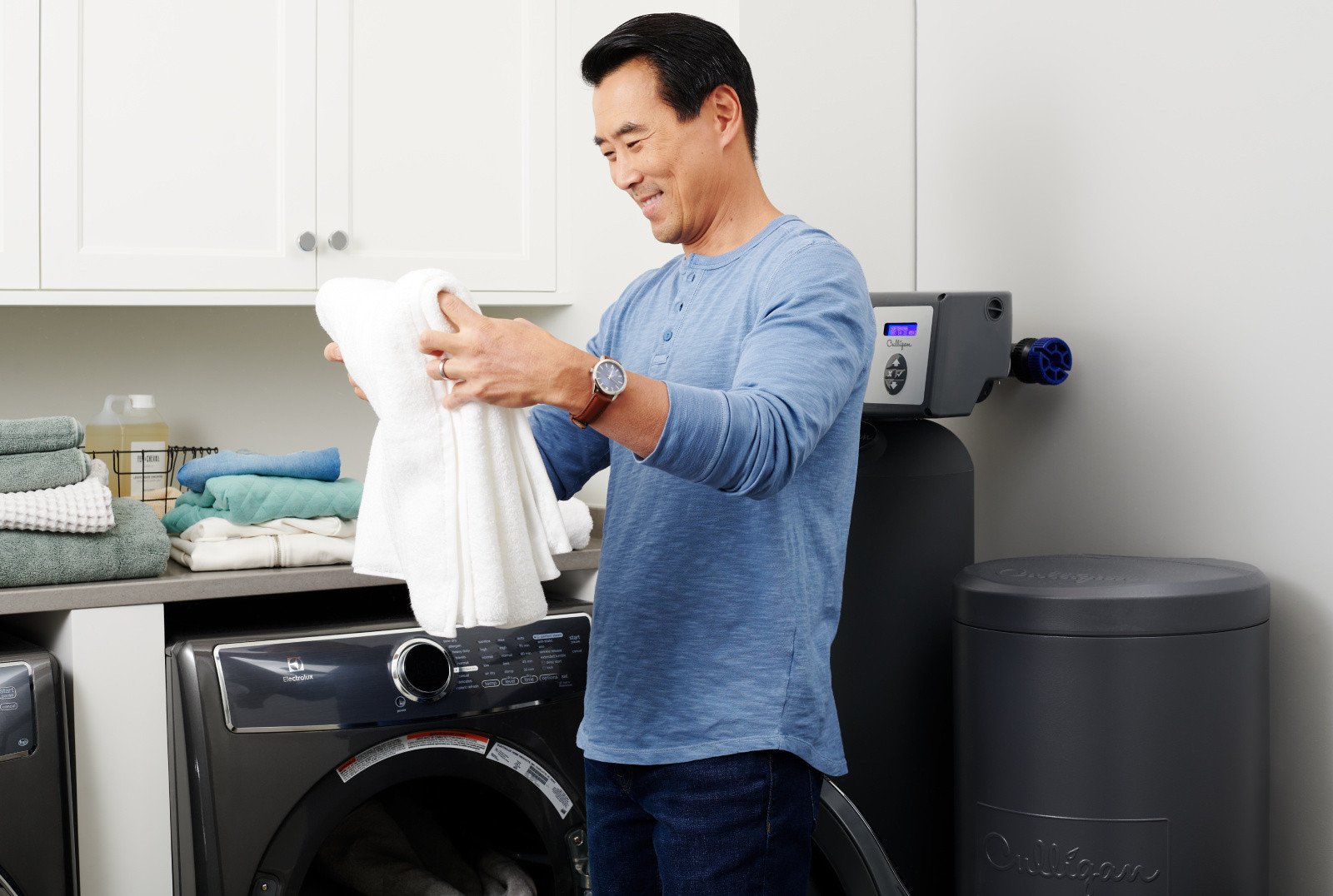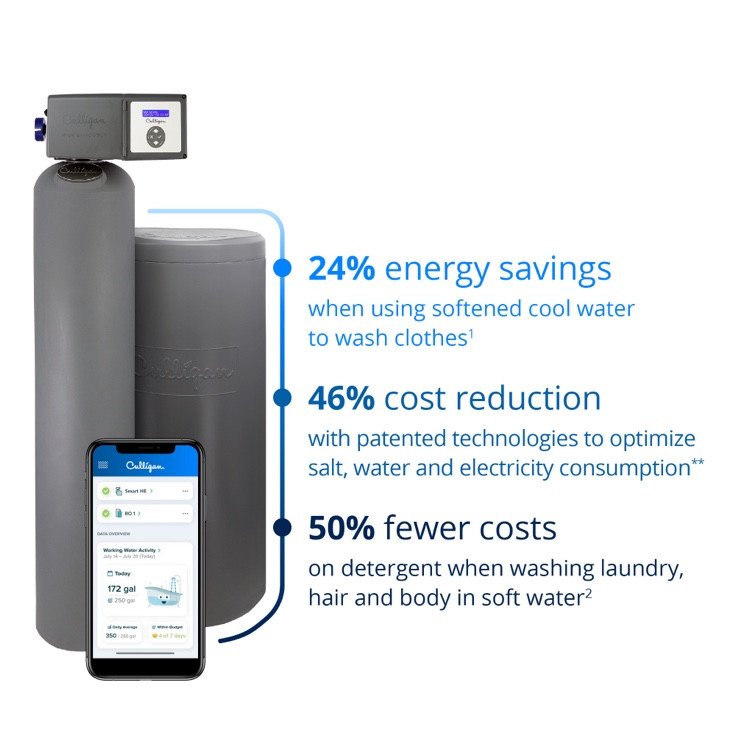Five Common Water Softener Myths Debunked
When it comes to water softeners, there are many misconceptions out there. Here’s the real truth.
Posted in
Calcium,
Culligan Nation,
Hard Water,
Magnesium,
Salt,
Softener Maintenance,
Water Softener,
Water Treatment,
Well Water

Do you have hard water or poor water quality? Find out with our free water test from your local Culligan water expert.
Water softeners provide many benefits to your home, health and even your wallet. While this may be common knowledge for some, there are several lingering myths about water softeners.
So, how can you separate the facts from the myths? Let’s dive into the most popular misconceptions about water softeners and set the record straight.
Myth #1: Soft Water Tastes Salty
It’s true that water softeners add sodium to your water. However, softener salt is different than table salt. Additionally, with a properly functioning water softener, you will not be able to taste the salt.
So you may be asking yourself, Is it safe to drink softened water? The answer is yes.
While some may be concerned that drinking softened water will increase the level of sodium in their diets, the actual amount of added sodium is extremely low. For example, when very hard water is softened, sodium levels are around 20-30mg for 8 ounces of water. For reference, an 8-ounce glass of low-fat milk contains around 120mg of sodium.
If sodium levels remain a concern, combining your water softener with a reverse osmosis drinking water system can help to reduce salt and potentially harmful contaminants.*
Myth #2: Water Softeners Are Bad for Septic Tanks
A common myth is that the sodium in softened water reduces the effectiveness of the bacteria your septic system needs. In reality, soft water can increase the biological performance of the septic tank. The right amount of sodium in the soft water aids bacterial growth, optimizing the septic treatment process.
Plus, one of the benefits of having soft water is using less soap, detergent and cleaning products. In addition to the savings you’ll enjoy from spending less on these products, it also lessens the negative impact they can have on your septic system.
Myth #3: Water Softeners Remove Essential Minerals From Drinking Water
Rest assured, you will not miss out on any essential minerals by using a water softener. Calcium and magnesium are both important to optimal health. However, food is our main source of consuming these minerals – not water. If you would like to add more calcium and magnesium to your diet, drinking hard water is not the solution.
In fact, the calcium and magnesium found in hard water cannot be properly digested. So, reducing their presence in drinking water will not hinder your proper intake of these minerals.
Myth #4: Soft Water Leaves a Film on Your Skin
After showering or bathing in soft water for the first time, some people may notice a slippery feeling on their skin. Contrary to popular belief, this isn’t a soapy film. In fact, the slickness on your skin after bathing in soft water is actually your body’s natural essential oils.
On the flip side, showering or bathing in hard water leaves an insoluble soap scum film on your body, causing your hair and skin to “squeak.” But what you notice after showering with hard water is not a sign that you’re “squeaky clean.” It means you are covered in a sticky residue.
Myth #5: You Don’t Need a Water Softener if You Have City Water
One of the biggest misconceptions of all is that water softeners are only necessary if you have a private well. While municipalities are required to treat water for impurities, they typically do not remove hard water minerals since they aren’t harmful to your health.
As a result, water-using appliances such as water heaters, washing machines and dishwashers are unable to run as efficiently when they suffer from hard-water buildup. This can result in plumbing damage, more frequent breakdowns and higher costs.
Culligan water Softeners

With a water softener from Culligan water, your whole home benefits. By reducing the hardness of your home's water, you can:
- Use less soap when bathing, laundering and cleaning, since soft water increases soap lather.
- Reduce sticky soap residue and film on skin, hair, clothes and dishes.
- Significantly decrease scale buildup in plumbing and appliances, ensuring efficient operation and increasing their lifespans.
- Lower energy consumption and costs by improving water flow in your pipes and reducing scale buildup in water heaters.
- Eliminate mineral-derived odors in your home.
- Make household cleaning and maintenance easier and more cost-effective.
Best of all, Culligan water systems are backed by industry-leading warranties and are built to last with tanks that resist UV rays, rust and corrosion. That’s water you can feel confident about.
Below is one of our most popular water softeners.
Featured Product: Aquasential™ Smart High Efficiency (HE) Water Softener

The world’s most efficient water softener**, the Aquasential™ Smart HE Water Softener, reduces hard water minerals to benefit both you and your home. Water-using appliances last longer, dishes get cleaner and your clothes, hair and skin become softer, too. Smart technology provides salt refill alerts and insights on product usage and performance through the Culligan Connect™ App.
Getting Started
At Culligan water, we have more than 85 years of expertise in water problems and solutions, serving 50 million customers per year. Our innovative systems are built to last. So you can feel confident that you can enjoy your soft water for many years to come.
Contact your local Culligan water expert for more information about your water softening, Culligan water products or to schedule a free water test today!
*Contaminants may not be in your water.
**HE Softener when configured with proportional upflow brining with Aqua-Sensor® technology.
